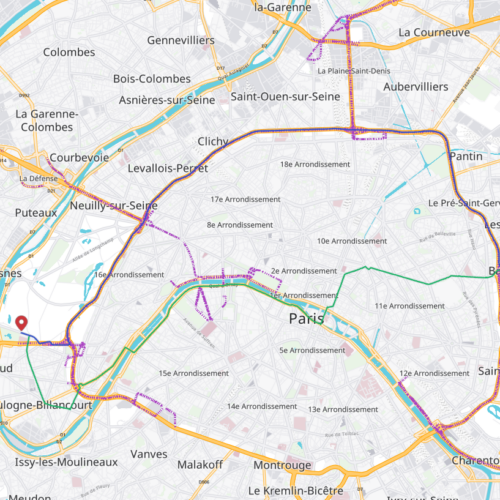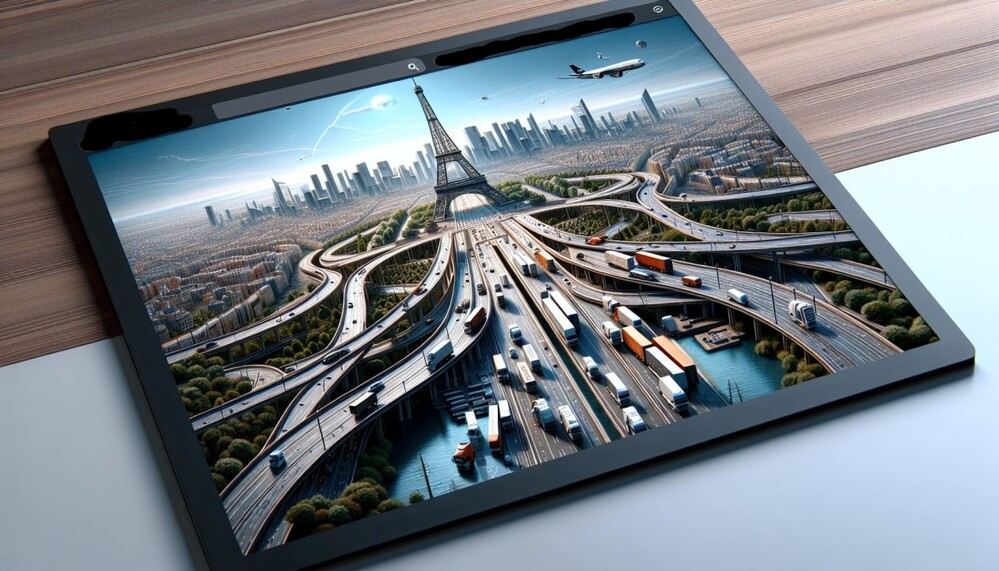The Olympic and Paralympic Games happening this summer will significantly affect the flow of goods and people. Thankfully, transport & logistic software solutions exist to help reach the top of the delivery podium during this period.
It is a challenge for athletes… and for last-mile delivery pros! The Olympic and Paralympic Games are set to take place this summer in France. From July 26th to August 11th, and then from August 28th to September 8th 2024. The world’s biggest sporting event, eagerly anticipated by many, will nonetheless have a strong impact on the transportation of people and goods. In the Île-de-France region, where 25 of the 39 competition sites are located, over 10 million visitors are expected. By decree, 185 kilometers of roads or lanes of these roads will be reserved for accredited vehicles, as well as public transport and taxis… In addition to an international sporting competition, the Olympics also represent a logistical feat for the City of Paris.
But how will companies in the last-mile sector ensure quality service under these exceptional conditions? The Regional Chamber of Commerce and Industry offers some tips, suggesting businesses adjust their delivery schedules, modify their routes (thanks to a tool currently under development), switch their modes of transportation to foot or cargo bikes, or even consider deliveries via the Seine during specific time slots defined by the prefecture.
A real hurdle race for last-mile delivery companies
However, even by strictly following these official recommendations, many businesses will still be unable to fulfill their deliveries within the contractually announced times to their customers. They also need to adopt new tools to cope with these new organizational and regulatory constraints. The massive influx of people on certain days and times, including spectators from around the world, athletes, teams, sponsors, or even locals out for a stroll around the event, will indeed affect traffic, necessitating adjustments from businesses.
Similarly, the flow of goods, already difficult to manage in Île-de-France under normal conditions, will be multiplied, potentially leading to a saturation of road traffic in the capital. Additionally, waste collection will be more abundant during this period, and will need to be reorganized and prioritized over goods delivery. Beyond the traffic restrictions directly related to the Olympics, the implementation of Low Emission Zones (LEZs) will once again test the adaptability of transport companies.
A working group dedicated to urban logistics has been established for this purpose, led by the Greater Paris Metropolis, with support from the Interlud program (Territorial Innovations and Sustainable Logistics) and the Logistics in Gold Club. It’s clear to everyone that the transport and logistics sector will need to be highly flexible to cope with the disruptions caused by this major event. This challenge encourages publishers to double their creativity in creating software solutions capable of overcoming all challenges and winning each event.
The power of algorithms for complex environments
Indeed, the Paris 2024 Games are an opportunity to innovate in the world of transport and to mark a turning point for efficient urban logistics, respectful of citizens and their environment. PTV Logistics has launched a demonstrator that considers traffic restrictions and specific carrier constraints, capable of dynamically calculating the best scenarios and alternative routes based on traffic data. With powerful algorithms and innovative technologies, it’s possible to address multi-constraint contexts and maintain a high level of reliability in delivery services. Optimizing flows, whether for delivery, collection, or reverse logistics and real-time tracking enriched with an ETA (Estimated Time of Arrival) feature for better anticipation, and the implementation of a collaborative platform for greater visibility at each step, are guarantees of a podium finish.

An opportunity to seize
Undoubtedly, the Paris 2024 Olympic and Paralympic Games will have a significant impact on the city’s flow of people and goods, as well as on the activities of last-mile players. Those who see this as a strategic development opportunity and engage in a digital modernization process will undoubtedly gain a competitive edge and ensure the sustainability of their activity. With next-generation digital tools, powered by powerful algorithms that take into account the specifics of these professions, the urban logistics of tomorrow is being built today, in the global spotlight.
